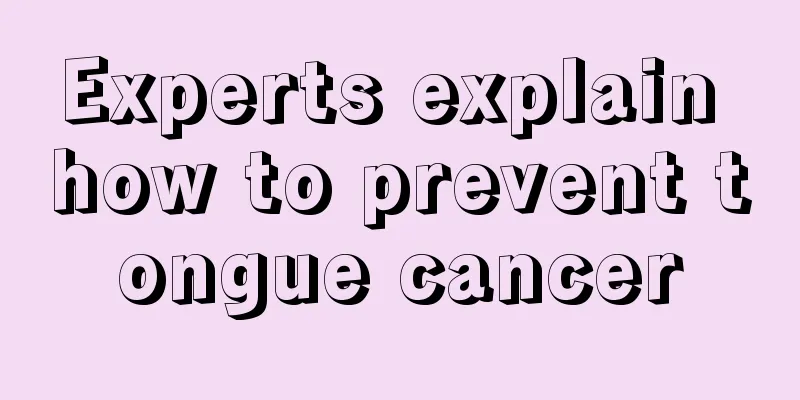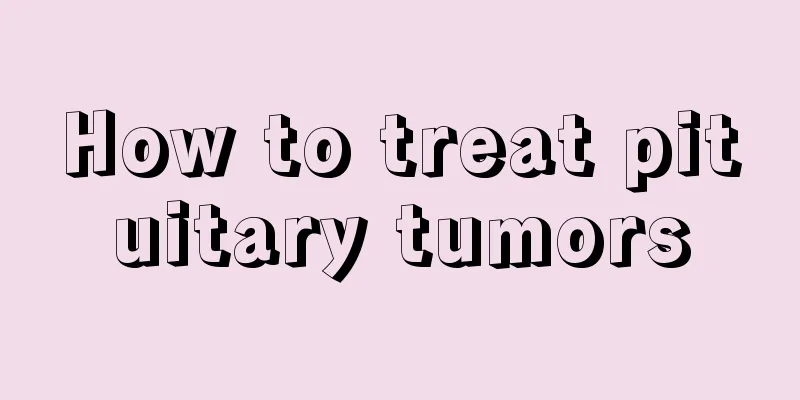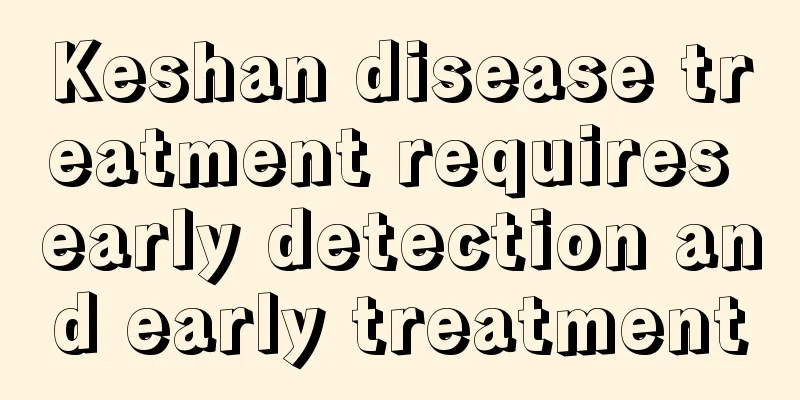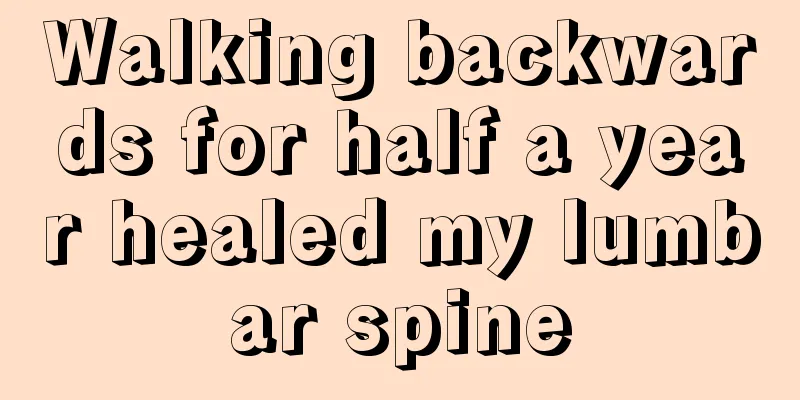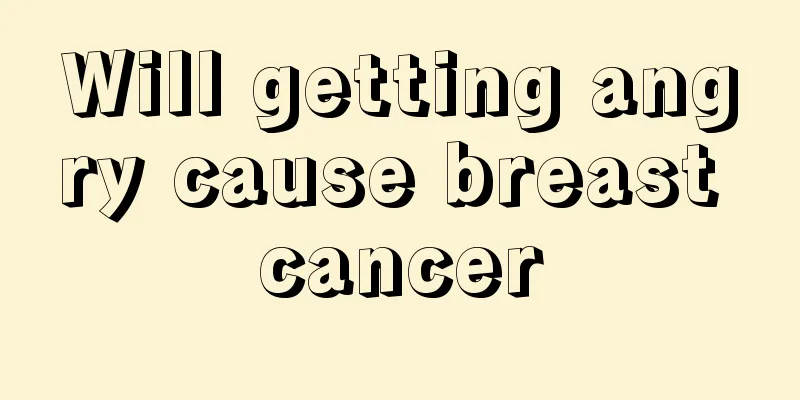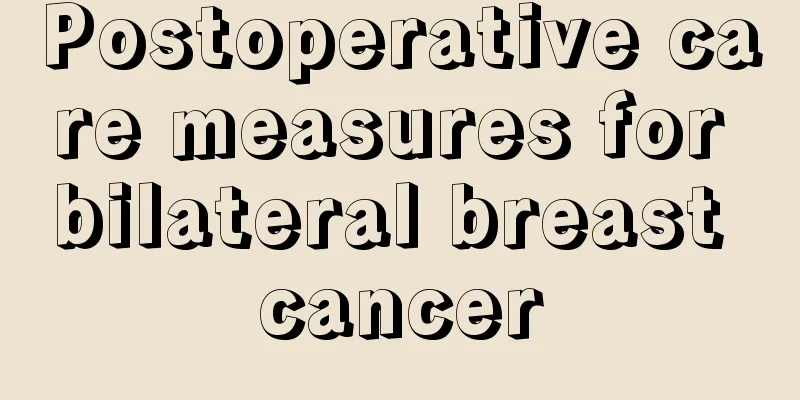It hurts when I bite hard after filling my tooth
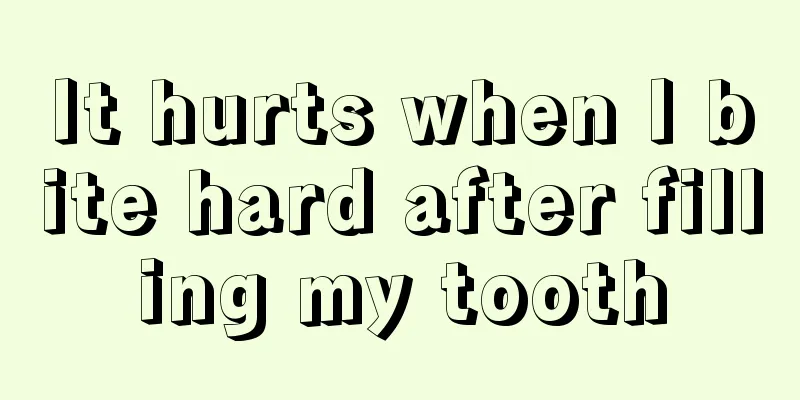
|
Wenwen's teeth are sometimes eroded by bacteria, causing cavities or tooth decay. When problems occur with the teeth, they should be treated and repaired in time, otherwise more and more teeth may become unusable. When people fill their teeth, they need to add something that has a similar texture to the teeth, and people will experience a lot of discomfort after the filling. So, why does it hurt when you bite hard after a tooth is filled? 1. The cave wall tissue is weak. Patients may experience weak tooth tissue being crushed and food being trapped. This is due to the weakness of the cave wall and the resulting defects due to poor pressure resistance. In addition, the lack of base enamel can also cause weak cavity walls because there is a lack of dentin lining under the enamel, which reduces the resistance to pressure. 2. Severe caries and loss of retention performance: Severe caries generally refers to residual crowns or residual roots: In terms of the retention performance of both residual crowns or residual roots, residual crowns are stronger than residual roots. In general, the residual crown or root does not have normal retention and is most likely to cause the filling material to loosen and fall off. In clinical practice, attention should be paid to the retention problem before the repair of residual crown or root. The specific method is to use root canal retention and insert root canal nails to increase retention. 3. Tooth fracture: Tooth fracture mostly occurs in dead teeth. Because dead pulp teeth are brittle, their resistance to pressure is reduced and they are easily broken. Ways to prevent dead teeth from breaking: reduce the bite; shell crown restoration technology can also be used to prevent breakage. 4. Fracture of filling materials: Fracture of filling materials is often caused by the tooth tip being in close contact with the filling material. The chewing pressure it bears is greater than that of other teeth, which is medically called traumatic occlusion. The most common traumatic manifestation on the crown is crown fracture, especially interproximal holes, which cause the crown and filling material on one side to break. Metal shell crown technology is often used in clinical practice to repair and solve the problem. 5. The filling is not tight: it is manifested as a loose connection between the filling and the cave wall. This is due to the presence of bubbles or cavitation. Bubbles or cavitation often occur at the edges or necks of the teeth. The reasons for the formation of bubbles or cavitation are insufficient filling pressure or too thin mixing of the filling material, etc. The way to prevent the formation of bubbles or cavitation is to choose appropriate filling instruments for silver-mercury filling and use forming clips for class II holes. The filling device is required to move in the buccal and lingual direction to fill all the corners of the cavity wall. In this way, no cavitation will occur in the filled material. In addition, various paste materials are required to be mixed into a dough state. Due to their poor fluidity, small cotton balls of various pastes should be prepared for filling and extruding various pastes. Place the prepared paste in the hole and squeeze it promptly with a small cotton ball until it is full. If you observe a tightly filled tooth with the naked eye, but can see gaps of 10-20 micrometers under an electron microscope, this means there are bubbles or cavitations, which means the filling is not tight, which is the cause of secondary caries. Therefore, the measure to prevent secondary caries is to fill tightly. In addition, keeping the cavity dry is also one of the measures to ensure tight filling. 6. Dissolution of cavity wall edge materials: This refers to the padding materials attached to the cavity wall edge, especially the cavity opening or the neck of the second-class cavity, such as zinc oxide clove oil paste, zinc phosphate cement, etc., which can be dissolved by saliva. After dissolution, gaps will appear and cause caries. In fact, it is not difficult to check whether there is any padding material attached to the hole after padding. A spoon is usually used to remove the filling material at the bottom of the cavity. 7. Oral saliva contaminates tooth cavities: Some dental filling materials soften and dissolve immediately when in contact with water, such as zinc phosphate cement, which can cause a poor fit between the material and the teeth. To prevent oral saliva contamination, the method of isolating saliva and blowing the tooth cavity dry with an air gun is often used. 1. Follow your doctor's advice and do not chew food or hard objects with your newly filled teeth. After a tooth is filled, you should generally chew food on the affected side on the 2nd or 3rd day to prevent the tooth from breaking and the filling from falling off. 2. If you experience slight pain after a tooth filling, you can observe yourself first. Some slight discomfort and pain may disappear on their own. If the pain does not ease but worsens, or if biting pain, throbbing pain, pain from hot or cold stimulation, or spontaneous pain at night occurs, you should go to the hospital for follow-up examination and treatment in time to find out the cause and eliminate the pain. 3. For teeth with large areas of defects that are severely damaged by caries, fractures are prone to occur during chewing due to insufficient resistance of the tooth itself after restoration. Therefore, after filling these teeth, shell crowns should be placed on the affected teeth in time according to the doctor's advice to prevent fractures. 4. Follow up with your doctor at the time agreed upon by your doctor. 1 Generally speaking, it is best not to eat with the newly filled teeth within two hours after the filling, because most filling materials need 24 hours to fully cure. 2 If you feel pain when eating cold or hot food after tooth filling, you should pay attention to observation. If the pain is not severe and the degree of pain has been significantly reduced, you can leave it untreated. If the pain persists, gradually worsens and cannot be relieved, it is likely that pulpitis or apical periodontitis has occurred, and you need to go to the hospital for treatment in time. 3 If periodontal pain occurs after a tooth filling, for example, a dull pain when biting but no pain when not biting, and it has nothing to do with eating hot or cold foods, this may be due to the high material used in the filling, early contact with the teeth causing periodontal trauma, or tooth inflammation caused by certain drugs. If persistent dull pain occurs after a tooth filling, the pain is clearly located, worsens when biting, and has nothing to do with eating hot or cold foods, this may be because the adjacent surfaces of the filling material have not been properly trimmed, and the accumulation of food debris has caused gingivitis. |
<<: I suddenly couldn't breathe when I was sleeping at night
>>: What should I pay attention to after having my teeth filled
Recommend
Will colon cancer recur after being cured?
Will colorectal cancer recur after being cured? I...
What should I do if my feet are always sweating?
Having sweaty feet all the time is of course an u...
What to do if muscles swell and ache
Muscles are unique components of the human body a...
Depth of oral suction
Oral suction is also a common method of suctionin...
My knees can't move
I believe that there are not many people who have...
Can the yam, coix seed and Euryale ferox porridge be left overnight?
Yam, coix seed and Euryale ferox porridge is a ve...
Hemorrhoids with hard cores are actually prolapsed hemorrhoids
Hemorrhoids are also known as hemorrhoids. There ...
How to balance blood sugar levels two hours after a meal
Recently, the blood sugar levels of many people a...
What are the symptoms of advanced lung cancer? What are the recommended prescriptions for treating lung cancer with traditional Chinese medicine?
The symptoms that patients with advanced lung can...
Will long-term use of a breast pump cause milk to dry up?
Many young women who are breastfeeding still have...
Family members must pay attention to the postoperative precautions for gastric cancer patients
At present, there are more and more gastric cance...
How to treat the spread of throat cancer
How is throat cancer that has spread treated? Tre...
Is scabies contagious
Many people do not know much about scabies, and d...
Can you swim with tampons?
For most Chinese female friends, the word "t...
Experts explain the early signs of bone cancer that need attention
In real life, some early signs of bone cancer are...
